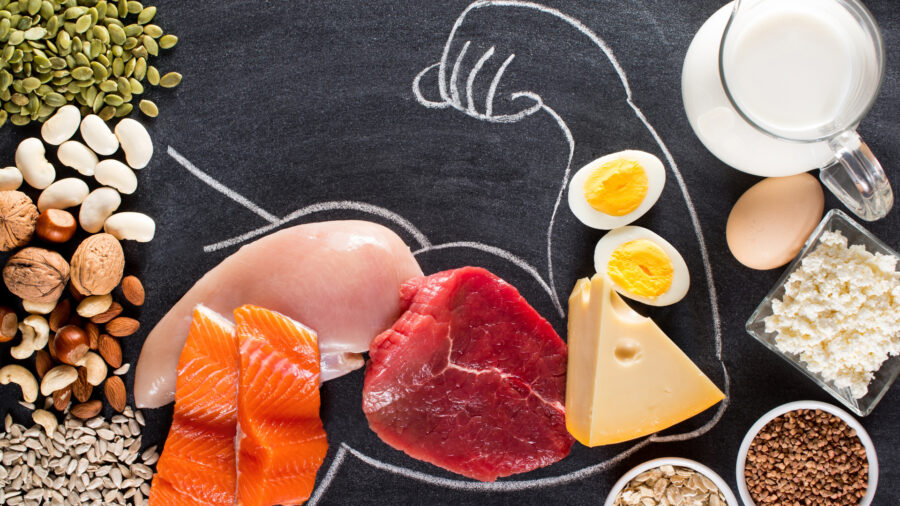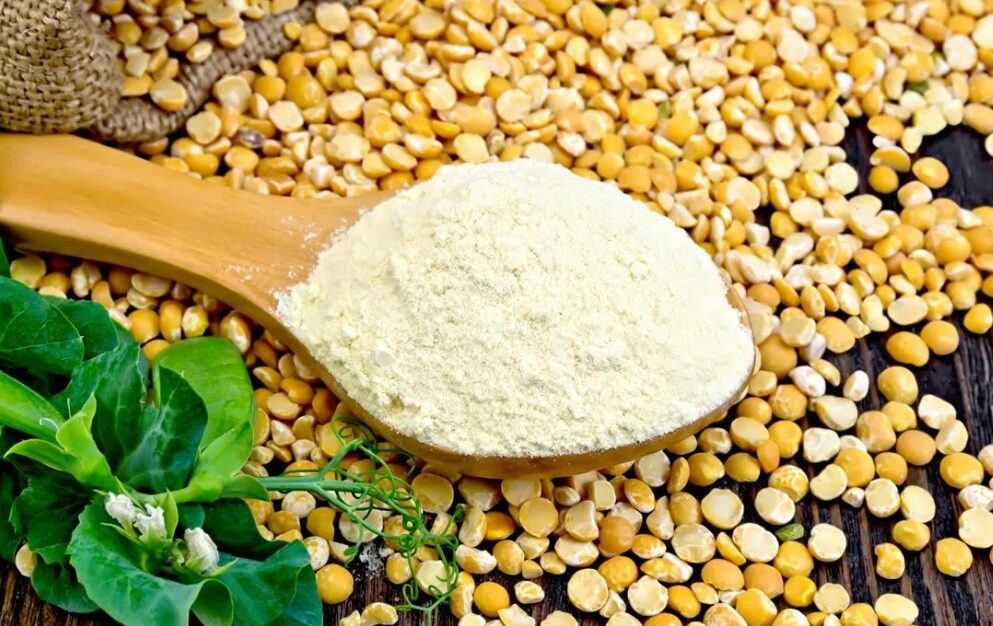Are you eating enough protein? Some experts argue the daily recommended 0.8 grams per kg of body weight isn’t nearly enough.
“There seems to be no question that protein is needed in times of growth or repair. However, just how much we should be eating has some disagreeing,” medical expert Palina Lancaster told The Food Institute.
“In general, protein needs vary based on age, gender, health status, and activity levels, but are our current guidelines outdated? The recommended daily allowance was set forth by the Food and Nutrition Board in 1941 … with not much changing for protein recommendations since,” added Lancaster, MS, RDN, LD, and director of dining services for Morrison Healthcare.
“Based on today’s lifestyle – where we live our lives in fast forward – is [the protein] guideline outdated?”
To break down what the recommended amount of protein looks like, a 160-pound person can meet that with just a few eggs in the morning and an eight-ounce steak at night, according to a recent article by The Atlantic. As that publication noted, health researcher Jose Antonio said he believes sedentary adults should consume at least twice the recommended amount of protein and that people who are more active should start with a minimum of 2.2 grams per kilogram.
So, how much protein should we be eating? The Food Institute examined the issue by garnering the feedback of multiple experts.
Protein’s Benefits
Yelena Wheeler, registered dietitian nutritionist, noted that there are multiple benefits to a high-protein diet.
“Proteins are the building blocks for a lot of your functions, such as immunity, reproduction, muscle building and the function of vital organs,” Wheeler said. “When it comes to digestion, protein is a great nutrient that keeps you feeling fuller longer, which can assist in weight management, curbing food cravings and stabilizing blood sugar.”
Protein can reduce ghrelin, our hunger hormone, and increase peptide YY which helps to reduce appetite, explained registered dietitian Alyssa Pacheco.
Health experts note that, in times of stress and recovery, catabolic needs increase by as much as 2.5g/ kg/ bw to facilitate healing, Lancaster said. And recent studies have shown that increased dietary protein has been beneficial in the maintenance and mobility of muscle function and the treatment of not just obesity but also osteoporosis, type 2 diabetes, metabolic syndrome, and heart disease.
“From a food perspective, there seems to be no question that protein has a greater satiety value from carbohydrates and fats and can decrease hunger,” Lancaster said. “Protein can also increase satiety and thermogenesis – the dissipation of energy through the specialized production of heat – which is another contributory factor in weight loss.”
Risks of High Protein
A high-protein diet isn’t for everyone. Those with certain medical conditions, such as those with kidney disease, should avoid increasing their protein intake.
“Excess protein can be very taxing on the kidneys, since it’s the body’s filtration center,” Wheeler said. “The body only uses the protein it needs for vital functions and even some non- vital functions such as hair and nails. When the body doesn’t need the protein, it filters it through the kidneys and then excretes it.”
Lancaster, meanwhile, said that “more protein doesn’t necessarily mean eat more beef,” adding that whole grains, beans, legumes, nuts, and vegetables that are lower in saturated fat are more heart friendly.
Are You Eating Enough?
Most Americans are likely eating the proper amount of protein.
“Most people are eating enough protein, since the American diet is relatively high in protein, due to animal protein being predominant and consumed almost at every meal,” Wheeler said.
People tend to fall short on protein earlier in the day, so if you’re worried, that may be an ideal place to start increasing your intake, experts note.
“Protein is arguably the most important macronutrient for aging, longevity, and muscle health,” Lancaster said. “As more Americans are seeking a higher protein content in their foods for weight loss and other health benefits, we may see the recommendations increase to help fight disease and obesity and to maintain or increase current muscle mass.”
The Food Institute Podcast
Everyone in the food industry wants to crack the code on Gen Z, but what are the reasons behind the generation’s food purchases? Alpha-Diver president Hunter Thurman joined The Food Institute Podcast to discuss some surprising findings from the Gen Z edition of the Snack 50 report and some of the psychological components that pushes Gen Z towards certain products and brands.












